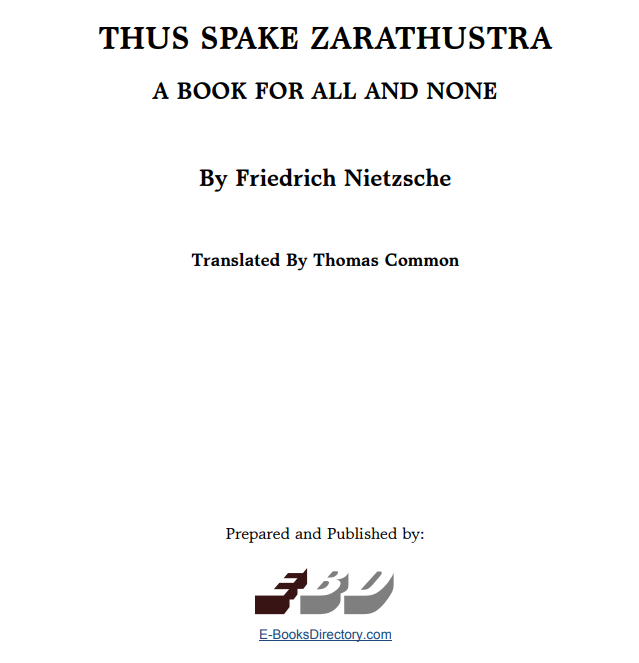
THUS SPAKE ZARATHUSTRA A BOOK FOR ALL AND NONE
Author: Friedrich Nietzsche Category: Filsafat Publisher: E-book Derictory ISBN: 9780486406633 More Details“Zarathustra” is my brother’s most personal work; it is the
history of his most individual experiences, of his friendships,
ideals, raptures, bitterest disappointments and sorrows. Above it
all, however, there soars, transfiguring it, the image of his
greatest hopes and remotest aims. My brother had the figure of
Zarathustra in his mind from his very earliest youth: he once
told me that even as a child he had dreamt of him. At different
periods in his life, he would call this haunter of his dreams by
different names; “but in the end,” he declares in a note on the
subject, “I had to do a PERSIAN the honour of identifying him
with this creature of my fancy. Persians were the first to take a
broad and comprehensive view of history. Every series of
evolutions, according to them, was presided over by a prophet;
and every prophet had his ‘Hazar,’—his dynasty of a thousand
years.”